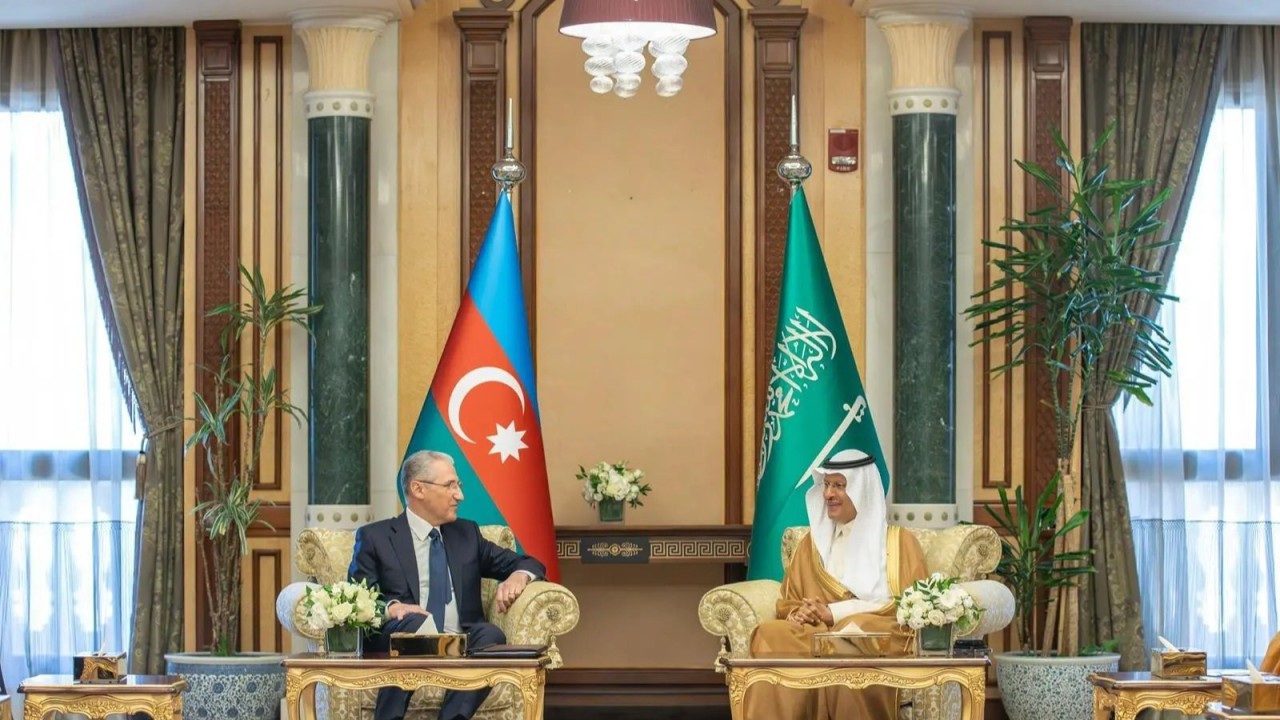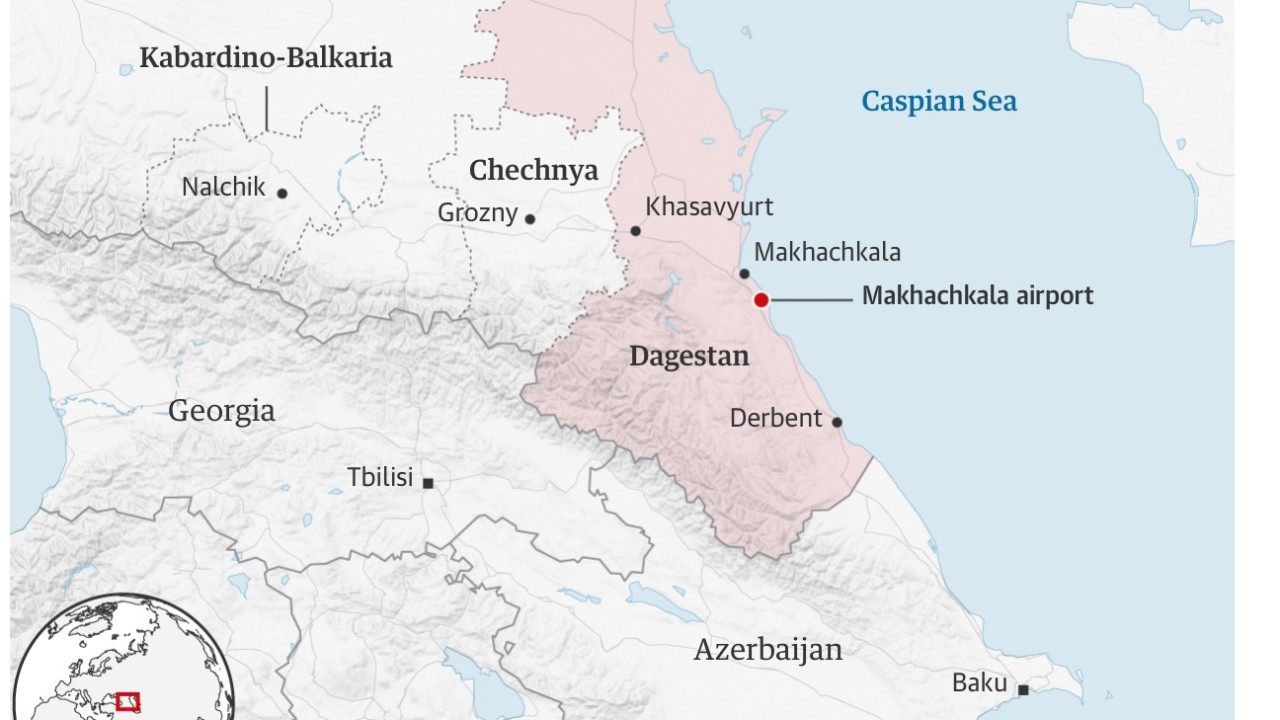Leading this month
Amid massive backlash against Georgia’s EU bid suspension, this month’s South Caucasus Brief explores the Georgian Dream’s longtime, not-so-covert rapprochement with Russia — and possible future scenarios.
In recent years, Georgian Dream’s authoritarian tendencies and soft engagement with Russia has rattled erstwhile international partners. (Despite clear warning signs, Western policy makers failed to adequately adjust their approaches.) Georgian Dream’s recent electoral victory — secured through fraud and disinformation — has further ignited the long-smoldering Georgia-West partnership. Amid this choreographed crisis in relations, Tbilisi has planned for renewed engagement with Moscow.
According to various diplomatic sources, since the summer of 2023, Moscow and Tbilisi have engaged in unofficial talks, conducted in Azerbaijan, Armenia and Belarus, to explore areas of cooperation — among them, the reintegration of South Ossetia into Georgia. In recent months, speculation has grown that the Kremlin may leverage South Ossetia and Abkhazia as part of a campaign to re-secure Georgia. (Russia also used a similar playbook — facilitating the takeover of Nagorno-Karabakh — to shore up its strategic alliance with Azerbaijan.)
Under a tentative arrangement, the Georgian Dream is expected to propose constitutional reforms that would allow for South Ossetia’s gradual reintegration. As part of this gambit, Tbilisi is also poised to resume diplomatic relations with Moscow and adopt a more “multilateral” foreign policy, softening its pro-Western orientation. Russia, in turn, has pledged to curtail its military presence in South Ossetia, though it will maintain its influence over Abkhazia.
This nascent deal also includes economic concessions, with Russia-linked businesses gaining investment access across Georgia’s transportation and energy sectors. And Moscow has agreed to support the Georgian government in resisting Western-backed opposition movements. (A potential tactic includes labeling critics as “agents of Russian influence” to sow distrust among the public; a tried-and-tested method.)
This geopolitical plot, shepherded by Georgian powerbroker Bidzina Ivanishvili, aims to present diplomatic engagement (not confrontation) with Russia as a resolution to Georgia’s territorial disputes, challenging the country’s longstanding Euro-Atlantic orientation. (Amid growing interest in a negotiated settlement to the Ukraine war, the Kremlin will likely seek to promote the same “pragmatic logic” in Kyiv.)
What we are watching
Performative pivot. On the sidelines of the CIS Summit in early October, Armenian Prime Minister Nikol Pashinyan and Russian President Vladimir Putin announced the “withdrawal” of Russian troops from the Armenia-Iran border. The move — negotiated in May — drew a wave of commentary around Armenia’s pivot away from Russia. (Over the last year, Armenian authorities have spotlit Russian withdrawals from Tavush and Yerevan’s Zvartnots Airport to burnish their anti-Kremlin credentials.) But upon closer inspection, these developments suggest — more than a wholesale shift — an updated mode of Armenian-Russian security cooperation.
Under the freshly-minted deal, Armenian border guards will assume operation of the Agarak border checkpoint with Iran. And Armenian troops will be involved in guarding the border with Turkey alongside existing Russian forces. (Despite media claims, Russian troops will continue to be stationed at the Armenia-Iran border.) According to observers, this recalibrated security arrangement is the product of longtime shifts. Moscow — following the 2014 invasion of Ukraine — sought to scale down its border security commitments in Armenia. At the time, the Kremlin proposed a joint border force with Yerevan. (Former Armenian President Serzh Sargsyan reportedly resisted the move, requesting an extended timeline to build up Armenia’s capabilities.)
This latest arrangement appears to be borne out of a similar logic; and not the product of an accelerated geopolitical about-face.
Abkhazia backlash. Last month, opposition over a controversial, pro-Moscow investment agreement morphed into a protest movement that ousted the Abkhaz government and its leader Aslan Bzhania. The unprecedented episode — the product of long-simmering tensions — centers around a Kremlin favored legislative package. Among other things, the bill is set to lift a moratorium on foreign property ownership and provide tax privileges to Russian firms. The Abkhaz — long wary of ceding sovereignty — perceive the investment deal as an existential threat and a ploy to expand Russian clout.
Over the last year, Moscow-Sukhumi ties have deteriorated amid sustained Russian pressure to relax long-standing restrictions around foreign property ownership. In December 2023, following Russian strong-arming, Abkhaz authorities approved the transfer of the state-run Pitsunda dacha to Moscow. (Critics characterized the deal as a sovereignty risk — and a gateway to further concessions.) Despite the dacha handover, the Kremlin continued to apply pressure. And in September, Russia curtailed financial assistance to cash-strapped Sukhumi.
At the time of publication, Abkhazia remains shrouded in a fog of political uncertainty. The Abkhaz opposition is maneuvering to scrap the investment agreement. And fresh presidential polls are scheduled for February 14. (Ousted leader Aslan Bzhania has declared his candidacy.) Russian meddling is poised to compound the political turbulence.
Minority casualties. Over the last year, mounting wartime casualties have stirred indignation — and protests — across Russia’s ethnic republics. Amid manpower deficits, the Kremlin has targeted minority groups to shore up its forces in Ukraine. (Russia is also recruiting from further afield — Yemen and North Korea.) According to reports, southeastern Siberia and the North Caucasus are particularly overrepresented among battlefield deaths.
Russia’s discriminatory mobilization strategies have provoked rare pushback across the North Caucasus. In August, a collective of North Ossetian civil society organizations issued a clarion call to freeze in-region conscription and disclose Ossetian casualties in Ukraine. (The plea — directed at North Ossetian leader Sergei Menyailo and Russian President Vladimir Putin — fell on deaf ears.) Protests have also erupted across Chechnya, Dagestan and Kabardino-Balkaria.
Russia has also drawn conscripts from South Ossetia and Abkhazia. (In early August, Abkhaz and South Ossetian volunteers were transferred to the Kursk region to help repulse Ukraine’s lightning incursion.)



